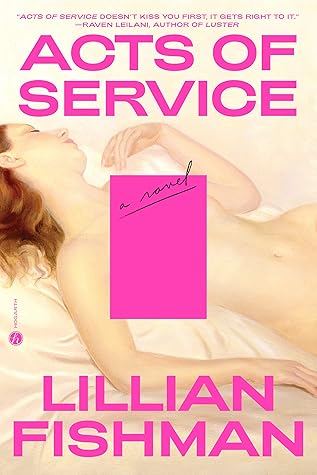More on this book
Community
Kindle Notes & Highlights
Her body was solid and so fully her own that it didn’t need to be invented by sex.
I was both envious of and baffled by her apparently effortless stability. She so often wanted exactly what it seemed she was supposed to want and then enjoyed it once she got it.
Around her I felt a purpose that I had previously associated with running a distance, knowing I would finish, pulling myself toward a clean triumph, and I understood suddenly the use for which my body had been made.
I think that first I have to get the thing I want, and maybe then I can figure out why I wanted it, or whether it’s good.
Perhaps it was her anxiety I was attracted to—the way it forced me, by contrast, into an unusual ease and confidence.
Yes—the dynamics between men and women were strange. I felt myself trying them on, aware of all the places in which they were not made for me.
This was a truth so inadmissible in my life that I insisted even to myself that it was not the case.
We were taught to value love yet not to rely on it too heavily, because the world of excessive freedom in which we had been made would not foster the long-suffering loyalty that love required.
Among queer people self-knowledge seemed especially important because we engaged in a continuous process of recovering, of dredging up what we had suppressed, and of interrogating what we had assumed. Openness and sincerity were prized above all else under a governing practice of radical tolerance, in which speaking about anything at all could yield only benefit and in which secrets could develop only into shameful wounds.
A life knows that it needs a shape and, taking cues from films and lives it has glimpsed, chooses a core around which to bend itself. A life recognizes the theater in which its keeper appears most real.
When I watched the way he treated Olivia I began to suspect that what he relished most was drawing out a person’s emotions and desires while remaining completely untouched by them.
For her it was love and it was deeper than the disallowed.
What a pleasure it was to be obvious, even if what was obvious was merely my body.
Oh, I said. Hello.
When you know from the beginning what’s allowed and what isn’t, what someone says they’ll want, what room is there for you to figure out what’s going to happen—or for her to discover that she wants something she didn’t realize? For the sex to actually open up something?
I smiled again, because it felt good to reveal the truth to someone who liked me for it.
They said what I believed and knew to be true, but they ignored our reality: that women were valuable only until their bodies expired, that women who gave themselves only to each other relinquished this value altogether.
How can a body ever be safe when it’s only a body? How can we expect that no stranger will be tempted to torch an empty house?
I wanted to be swept into someone else’s certainty, to be swept into something.
But I was also afraid to become a serious person, as Romi was, because people were seldom loved in our world, in our century of self-interest and conditional love, for their sincerity or their steadfastness.
We love what disturbs us if it chooses us and tells us how we matter. Don’t we love a cashed check, a passport, the touch of a president’s hand, though each pleasure rests on a cruelty just beyond our sight? The finger points, without equivocating, at us, and we wonder at being chosen.


